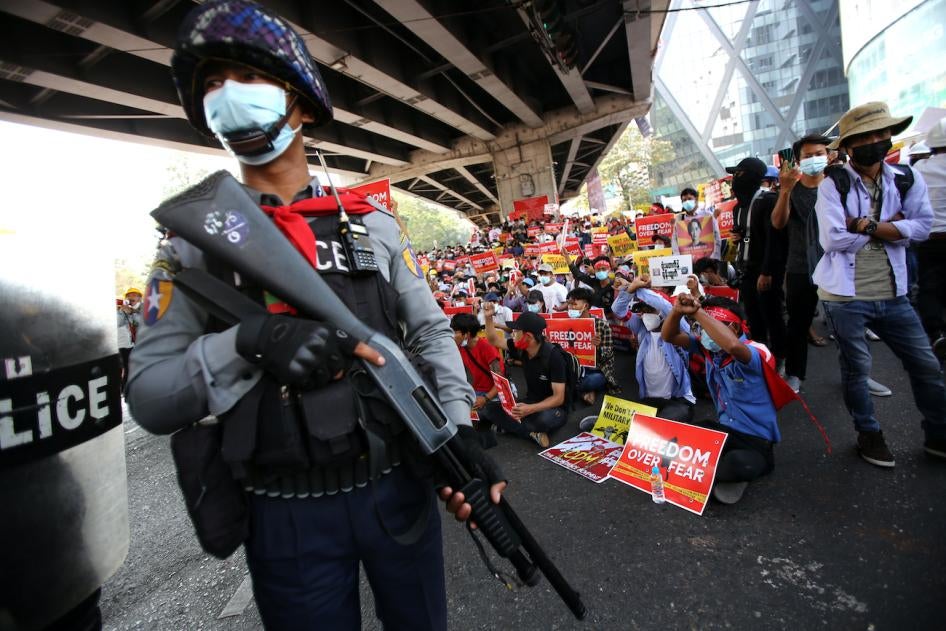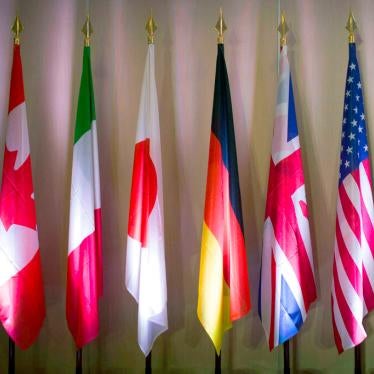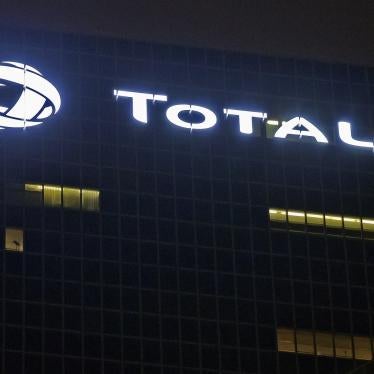Four months have passed since a military coup in Myanmar. Four months of protests against the junta that overthrew a newly elected government and four months of shooting peaceful protesters. Four months of security forces arbitrarily arresting civilian officials, protest leaders, and journalists. Security forces have now killed over 800 people and detained thousands—some subject to enforced disappearances, raising the risk of torture and summary execution.
Meanwhile, the escalation of fighting and increased vulnerability in ethnic minority areas has forced at least 175,000 people to flee their homes. Media across the country are shuttered, and internet access is almost non-existent. Humanitarian conditions and food insecurity are worsening everywhere. The UN has warned that half of Myanmar’s population, about 25 million people, could be living below the national poverty line by early 2022.
President Macron’s responses to the catastrophe have not matched the gravity of the situation. On June 11, however, he travels to the UK to meet other leaders of the G7. This is an opportunity for Macron to be bold and work more closely with key governments for a stronger and more robust response to the junta's serious crimes in Myanmar.
Already, the US, UK and Canada have imposed a set of increasingly tough sanctions on the junta’s leaders and junta-controlled companies—the military’s main sources of revenue. The European Union is also preparing a new set of sanctions that should be adopted on June 21 at the next EU Foreign Affairs Council. It is imperative that these sanctions target revenues from the oil and gas sector in Myanmar and that France adopt a proactive approach to bring its European and international partners to this urgent objective.
Now, the US is exploring with key G7 partners further options for blocking the junta’s access to natural gas revenues, which provide the military its single largest source of foreign currency—approximately $1 billion annually—money the military uses to purchase arms, pay its patronage networks, and maintain its grip on power.
The French government has not yet signaled publicly its support for such steps. The French energy company Total produces over half of the gas revenue the junta receives, and with the company’s deep and enduring linkages with the French government, this may be affecting Macron’s calculus.
Total did recently suspend certain dividends from a gas pipeline company it controls, which it is entitled to do under contract. While the amounts at stake are relatively small, the action shows a recognition that payments to the junta are ethically problematic and create reputational risks for the company. Total also stated that it will abide by future sanctions if governments impose them—signaling that the company believes that without sanctions it cannot cut off other larger payments it is legally obligated to pay under contract or Myanmar law, including royalties, sale dividends, tariffs, fees, and taxes.
Total previously voiced concerns, however, that tougher sanctions would force it to abandon their natural gas operations in Myanmar. The company may be concerned that the step would set a precedent for governments to force them out of other rights-abusing countries. Total has also argued that stopping natural gas operations would lead to electricity cuts in Myanmar and harm the people, not the military.
Macron should not be swayed by these faulty arguments. US officials are aware of concerns about gas production and have been specifically considering tailored sanctions that would stop the Myanmar junta’s access to gas revenue without affecting production, measures targeting the bank accounts that process gas revenue transactions to the junta, without touching gas operators themselves. And even with sanctions imposed directly on Myanmar gas operations, governments can grant “licenses” to allow production to continue—and gas in kind to be delivered to Myanmar for electricity—while still blocking bank payments. In a different context, this type of approach has been used in Libya.
The junta will only change its behavior if its economic lifeblood is threatened. And since gas revenue provides the bulk of it, states seeking an end to Myanmar’s crisis should focus on it. At the G7, President Macron should support such steps and work with G7 partners to make them effective.
Coordination and unity are key. Foreign currency payments to the junta—not just for gas but also gemstone, jade, timber, and other extractive resources—are mostly made in US dollars, but there are risks that the junta, facing increasing sanctions, will soon ask companies to switch to other foreign currencies. Coordinated action among G7 partners on sanctions would make that untenable.
During President Joe Biden's visit to Brussels, just after the G7, President Macron and other governments working together can send a strong and clear message to the junta: engaging in atrocities with impunity has consequences, and unwillingness to engage about restoring democratic rule will come at a severe cost to their economic interests and standing on the international stage.











